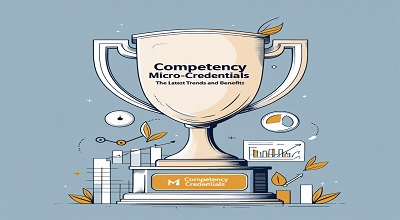Competency Micro-Credentials
Competency Micro-Credentials: In today’s rapidly evolving educational and professional landscape, competency micro-credentials have emerged as a powerful tool for validating skills and advancing careers. Unlike traditional degrees, micro-credentials focus on specific skills, allowing learners to demonstrate expertise in niche areas.
What Are Competency Micro-Credentials?
Definition and Key Features
Competency micro-credential are digital certifications that validate an individual’s mastery of a specific skill or competency. They are:
- Short-term – Earned in weeks or months, not years.
- Skill-specific – Focused on precise abilities (e.g., “Digital Classroom Management”).
- Stackable – Can be combined for broader qualifications.
- Digital & Portable – Stored in digital badges or e-certificates.
Difference Between Micro-Credentials and Traditional Degrees
| Feature | Micro-Credential | Traditional Degree |
|---|---|---|
| Duration | Weeks/Months | 2-4 Years |
| Focus | Specific Skill | Broad Knowledge |
| Cost | Affordable | Expensive |
| Flexibility | Self-Paced | Structured Curriculum |
Latest Trends in Competency Micro-Credentials
1. Increased Adoption in Higher Education
Universities now offer micro-credentials alongside degrees to enhance employability. Institutions like Harvard and MIT provide digital badges for specialized courses.
2. Corporate Training & Upskilling
Companies like Google, IBM, and Amazon use micro-credentials to train employees in AI, cybersecurity, and leadership.
3. Blockchain-Verified Credentials
Blockchain ensures tamper-proof certification, increasing trust and reducing fraud.
4. AI-Powered Personalized Learning
AI recommends micro-credentials based on career goals and skill gaps.
5. Government and Policy Support
Countries like Australia and Canada integrate micro-credentials into national education frameworks.
Benefits of Competency Micro-Credential
1: For Educators
- Professional Development – Stay updated with teaching innovations.
- Career Advancement – Demonstrate expertise in niche areas like EdTech or STEM.
2: For Professionals
- Resume Boosting – Stand out in job applications.
- Lifelong Learning – Continuously upskill without long-term commitments.
3: For Employers
- Targeted Hiring – Identify candidates with verified skills.
- Cost-Effective Training – Reduce onboarding time with certified hires.
How to Earn Competency Micro-Credentials?
1: Identify Skill Gaps
Assess your career goals and required competencies.
2: Choose a Reputable Provider
Platforms like:
- Coursera
- edX
- LinkedIn Learning
- TeacherEducator.com
3: Complete Assessments
Pass quizzes, projects, or peer reviews to earn the credential.
4: Showcase Your Badge
Add digital badges to LinkedIn, resumes, and e-portfolios.
Future of Competency Micro-Credential
- More Industry Recognition – Employers will prioritize micro-credentials.
- Global Standardization – Unified frameworks for credential validation.
- Integration with Metaverse Learning – VR-based skill assessments.
Conclusion
Competency micro-credentials are revolutionizing education and professional development by offering flexible, skill-based certifications. Whether you’re an educator, professional, or employer, leveraging micro-credentials can enhance credibility and career growth.
